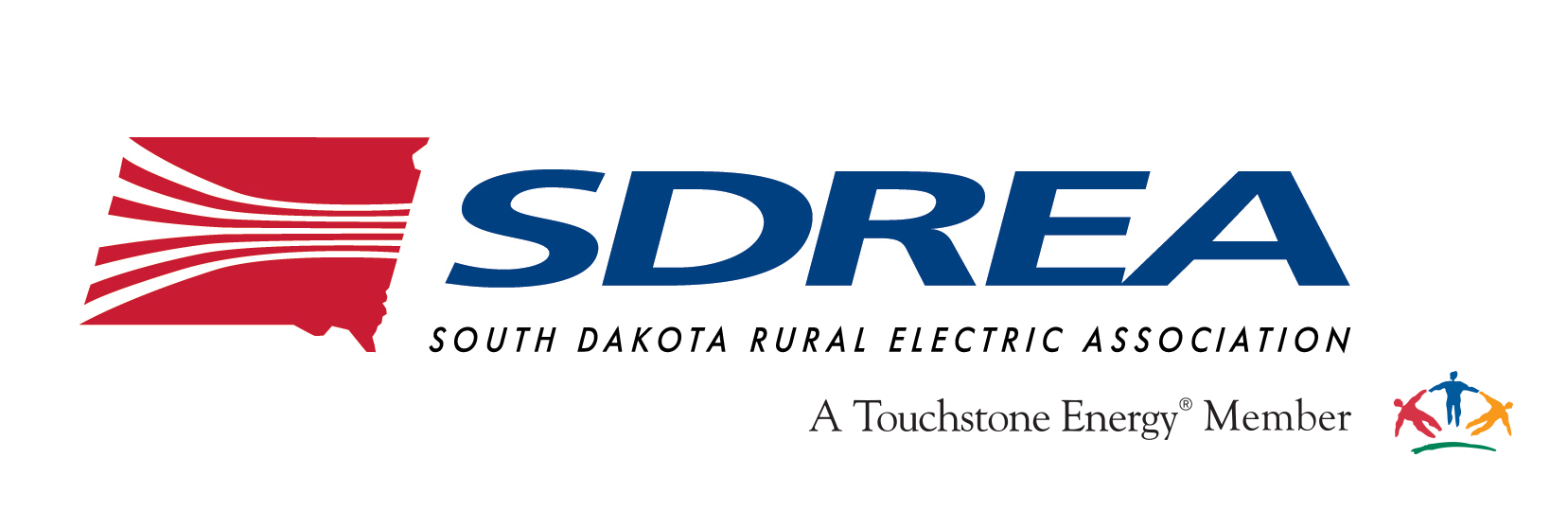Formed in 1942, SDREA proudly serves as the member services organization for electric cooperatives operating in South Dakota.
Our Mission
The South Dakota Rural Electric Association is devoted to unifying, promoting and protecting the interests of member electric cooperatives in South Dakota by providing leadership, training, communication, legislative representation and other member services.
Our Purpose
- To support in every logical way, the consumer-owned distribution cooperatives and power supply cooperatives in their job of providing the highest quality of electric service at the lowest possible cost, consistent with sound business practices.
- To provide informational programs that will stimulate local growth, stability and security, and strengthen the consumer -owned electric cooperative program in South Dakota.
- To operate always for the benefit of its member cooperatives, and through them for the benefit of their patrons, doing those things through SDREA that can be done better together than individually.
- To provide the means and the organization by which all electric cooperatives of the state can accomplish legislation needed on the state level, similarly opposing legislation detrimental to our members; and to work with NRECA on national legislation and policies affecting rural electrification and resource development.
- To support in every logical way, the consumer-owned distribution cooperatives and power supply cooperatives in their job of providing the highest quality of electric service at the lowest possible cost, consistent with sound business practices.
- To provide informational programs that will stimulate local growth, stability and security, and strengthen the consumer -owned electric cooperative program in South Dakota.
- To operate always for the benefit of its member cooperatives, and through them for the benefit of their patrons, doing those things through SDREA that can be done better together than individually.
- To provide the means and the organization by which all electric cooperatives of the state can accomplish legislation needed on the state level, similarly opposing legislation detrimental to our members; and to work with NRECA on national legislation and policies affecting rural electrification and resource development.
Bill of Rights
We, the consumer-owned not-for-profit members of the National Rural Electric Cooperative Association, endorse these rights for all consumers. We believe this Electric Energy Consumer Bill of Rights represents the standard against which electric utility restructuring proposals at the state and federal legislatures should be measured:
- The right to have access to reliable, affordable and safe electric power.
- The right to join together to establish and operate a consumer-owned not-for-profit electric utility.
- The right of consumer-owned not-for-profit systems to be treated fairly and recognized as a unique form of business.
- The right to elect representatives to manage their consumer-owned form of business to best meet their needs.
- The individual right to privacy that assures information about consumers will not be released without their prior express consent.
Seven Cooperative Principles
Voluntary and Open Membership
Cooperatives are voluntary organizations, open to all persons able to use their services and willing to accept the responsibilities of membership, without gender, social, racial, political or religious discrimination.
Democratic Member Control
Cooperatives are democratic organizations controlled by their members, who actively participate in setting policies and making decisions. The elected representatives are accountable to the membership. In primary cooperatives, members have equal voting rights (one member, one vote) and cooperatives at other levels are organized in a democratic manner.
Members’ Economic Participation
Members contribute equitably to, and democratically control, the capital of their cooperative. At least part of that capital is usually the common property of the cooperative. Members usually receive limited compensation, if any, on capital subscribed as a condition of membership. Members allocate surpluses for any or all of the following purposes: developing the cooperative, possibly by setting up reserves, part of which at least would be indivisible; benefiting members in proportion to their transactions with the cooperative; and supporting other activities approved by the membership.
Autonomy and Independence
Cooperatives are autonomous, self-help organizations controlled by their members. If they enter into agreements with other organizations, including governments, or raise capital from external sources, they do so on terms that ensure democratic control by their members and maintain their cooperative autonomy.
Education, Training, and Information
Cooperatives provide education and training for their members, elected representatives, managers and employees so they can contribute effectively to the development of their cooperatives. They inform the general public, particularly young people and opinion leaders, about the nature and benefits of cooperation.
Cooperation Among Cooperatives
Cooperatives serve their members most effectively and strengthen the cooperative movement by working together through local, national, regional and international structures.
Concern for Community
While focusing on member needs, cooperatives work for the sustainable development of their communities through policies accepted by their members.
